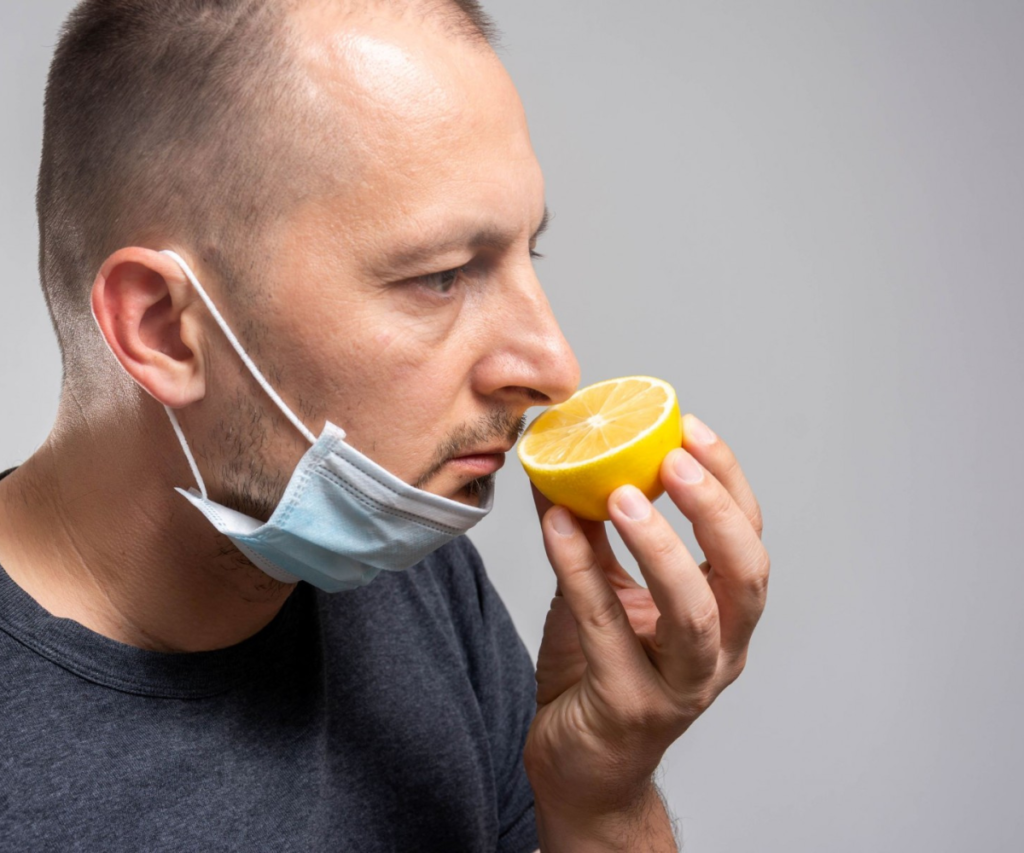Ways to Regain Your Sense of Smell
The ability to smell gives life a unique richness — from savoring your favorite meals to recalling treasured memories. Yet, when this ability fades, life can suddenly feel dull and disconnected. Losing your sense of smell, medically known as anosmia, can be both disorienting and distressing. Millions of people have faced this problem, especially after viral infections such as COVID-19. Fortunately, there are effective ways to regain your sense of smell that can help restore joy and sensory awareness to your daily life.
Smell loss can also occur due to allergies, sinus infections, head trauma, neurological disorders, or even aging. The good news is that recovery is often possible through early intervention, consistent retraining, and lifestyle adjustments. This comprehensive guide explores the causes of smell loss, the science behind the olfactory system, and evidence-based recovery strategies that can help you rebuild your sense of smell naturally.

Understanding the Sense of Smell
How the Olfactory System Works
The sense of smell is more complex than most people realize. Deep inside your nasal cavity lies the olfactory epithelium, a specialized tissue rich with sensory receptors. These receptors detect tiny odor molecules in the air and send signals to the olfactory bulb in the brain. From there, the brain interprets these signals as distinct scents.
Smells can enter the nasal cavity through two main pathways:
- Orthonasal route – when you breathe in through your nose.
- Retronasal route – when you chew food and release aroma molecules that travel from your mouth up to your nose.
This dual mechanism is why your sense of smell greatly influences your sense of taste. When the olfactory system is disrupted, the world of flavors becomes dull or nonexistent.
What Causes Loss of Smell (Anosmia)?
Loss of smell can result from a variety of conditions—some temporary and others chronic. Understanding the underlying cause is key to determining the best recovery method.
1. Viral Infections
Viruses that cause respiratory illnesses—such as the common cold, flu, or COVID-19—can damage the olfactory nerves or supporting cells in the nasal cavity. This inflammation may block the signal transmission from the nose to the brain, leading to temporary or prolonged anosmia.
2. Sinus and Nasal Issues
Chronic sinus infections, nasal polyps, or allergic rhinitis can cause nasal congestion and block odor molecules from reaching the olfactory receptors. Addressing these conditions often helps restore smell.
3. Head or Facial Trauma
Head injuries can damage the delicate olfactory nerves or the brain’s smell-processing regions, leading to partial or permanent smell loss.
4. Neurological Disorders
Diseases like Parkinson’s, Alzheimer’s, and multiple sclerosis can impair the brain regions responsible for smell interpretation, causing gradual smell decline.
5. Aging
As people age, the number of functioning olfactory receptors decreases, which naturally dulls smell sensitivity.
6. Exposure to Chemicals or Medications
Certain medications (like antibiotics or antihypertensives), smoking, or chemical exposure (such as pesticides and solvents) can harm olfactory cells.
Consequences of Losing Your Sense of Smell
Smell loss might seem trivial to some, but its impact on daily life and emotional well-being is profound.
1. Reduced Taste Perception
Since smell is essential for flavor recognition, food may begin to taste bland or unappetizing. People with anosmia often describe eating as joyless or mechanical.
2. Emotional and Psychological Impact
Anosmia can lead to depression, anxiety, and loss of appetite. The inability to enjoy meals, nature, or personal scents can lower one’s quality of life and self-esteem.
3. Safety Concerns
Without smell, it’s harder to detect dangers such as gas leaks, spoiled food, or smoke from fires, posing safety risks at home and work.
4. Memory and Relationship Effects
Smell is closely tied to memory and emotion. Losing it can affect intimacy, nostalgia, and even bonding experiences with loved ones.
Can You Regain Your Sense of Smell?

The possibility of recovery depends on the cause and duration of anosmia. For instance:
- Post-viral smell loss (such as after COVID-19) often improves gradually within weeks or months.
- Sinus-related anosmia may resolve after treating nasal inflammation or infection.
- Neurological causes are more complex and might require long-term management.
The key is early action. The longer the olfactory system remains inactive, the harder it becomes to restore its function. However, thanks to neuroplasticity—the brain’s ability to rewire itself—many people can retrain their sense of smell over time.
Smell Retraining Therapy (Olfactory Training)
What It Is
Smell retraining therapy (SRT) is one of the most effective and scientifically supported methods for restoring smell. It involves regularly exposing yourself to specific scents to stimulate and rebuild olfactory pathways.
How to Do It
You can use essential oils or natural scent sources. Choose 4–6 strong, distinct odors from categories like:
- Floral (rose, lavender)
- Citrus (lemon, orange)
- Spicy (clove, cinnamon)
- Herbal (rosemary, eucalyptus)
- Fruity (banana, apple)
- Resinous (pine, cedar)
Step-by-Step Process
- Find a quiet space and relax.
- Gently inhale one scent for 20–30 seconds.
- Focus mentally on the smell and recall memories associated with it.
- Rest briefly between scents.
- Repeat the process twice a day for at least 12 weeks.
This mental association process strengthens brain connections and improves recognition over time. Many users report gradual improvement within 2–3 months of consistent practice.
Home Remedies to Support Smell Recovery
Alongside smell training, several natural and medical approaches can enhance olfactory healing:
1. Steam Inhalation
Steam helps clear nasal passages, improving airflow to olfactory receptors. Add a few drops of eucalyptus or peppermint oil to hot water and inhale the steam for 5–10 minutes daily.
2. Stay Hydrated
Mucous membranes need moisture to function properly. Drink plenty of water to prevent nasal dryness and maintain olfactory health.
3. Nasal Irrigation
Rinsing your nasal cavity with a saline solution can remove allergens, mucus, and debris that block smell receptors.
4. Vitamin A Supplements
Vitamin A supports the regeneration of nasal cells. Foods like carrots, spinach, and eggs can naturally boost intake, but supplements should be used under medical supervision.
5. Zinc and Omega-3 Fatty Acids
Both nutrients promote nerve repair and reduce inflammation. Foods like fish, nuts, and seeds are beneficial for overall olfactory health.
6. Quit Smoking
Smoking damages olfactory receptors and narrows nasal blood vessels. Quitting can significantly improve recovery chances.
Medical Treatments for Anosmia

If home methods and smell training don’t work, a healthcare professional may suggest advanced treatments:
1. Corticosteroid Nasal Sprays
These reduce inflammation in cases of allergies or sinus issues, helping restore airflow to olfactory receptors.
2. Treating Sinus Infections
Antibiotics or decongestants may be prescribed to treat chronic infections blocking smell perception.
3. Surgery for Nasal Polyps
If polyps obstruct the nasal passage, surgical removal can improve both breathing and smell.
4. Hormonal or Neurological Therapies
In cases linked to hormonal imbalances or neurodegenerative diseases, targeted therapy may stabilize symptoms.
The Role of Neuroplasticity in Smell Recovery
Research shows that the brain can reorganize itself after injury—a property called neuroplasticity. Olfactory training takes advantage of this adaptability. Even when olfactory neurons are damaged, the brain can form new connections to relearn smells.
Consistency and repetition are vital. Just as physical therapy helps retrain movement after injury, smell therapy helps the brain rediscover scents.
Smell and Taste: The Close Connection
Smell contributes to about 80% of taste perception. When you lose smell, you might still detect sweet, salty, sour, bitter, or umami, but complex flavors vanish. Restoring smell automatically enhances the pleasure of eating and overall appetite.
Lifestyle Tips to Maintain and Protect Your Sense of Smell
- Avoid prolonged exposure to pollution or strong chemicals.
- Keep nasal passages clean using saline sprays.
- Exercise regularly to improve circulation and oxygen flow to nasal tissues.
- Eat antioxidant-rich foods like berries and leafy greens.
- Use humidifiers in dry environments to prevent nasal irritation.
- Seek medical attention early for chronic congestion or sinus problems.
Smell Loss After COVID-19
Post-COVID anosmia became one of the most reported long-term symptoms. Some people regain their smell in weeks, while others experience parosmia (distorted smell perception) or phantosmia (smelling things that aren’t there).
Smell retraining remains the most effective tool for COVID-related anosmia. Studies suggest 70–80% of individuals see improvement within six months of consistent practice.
Emotional Coping and Mental Health
The emotional toll of smell loss shouldn’t be underestimated. Individuals may feel isolated, frustrated, or detached from their usual pleasures. Support groups and therapy can help manage the psychological impact. Mindfulness, journaling, and sensory exercises also aid emotional adjustment.
When to See a Doctor
Consult a medical professional if:
- Smell loss lasts longer than three months
- You experience sinus pain, persistent congestion, or headaches
- You notice distorted smells or taste abnormalities
- Smell loss follows a head injury
A specialist (ENT doctor) can perform tests such as nasal endoscopy or MRI scans to find the cause and design a treatment plan.
Outlook and Long-Term Recovery
Regaining your sense of smell may take patience and persistence, but progress is possible. The brain continues adapting long after the initial injury. Staying consistent with smell training, eating a nutrient-rich diet, and addressing nasal health all contribute to successful recovery.
Even if complete restoration takes time, many individuals report partial improvement—enough to taste, enjoy food again, and reconnect emotionally with their surroundings.
Conclusion
Losing your sense of smell can feel like losing a part of yourself. But through early action, consistent therapy, and proper medical care, recovery is within reach. Smell retraining, lifestyle changes, and mindful self-care can reignite your olfactory senses and restore the vibrant connection between scent, taste, and memory.

Your sense of smell is more than a biological function—it’s a gateway to joy, safety, and emotional connection. By understanding how it works and nurturing it back to health, you can once again enjoy the scents and flavors that make life beautiful.




